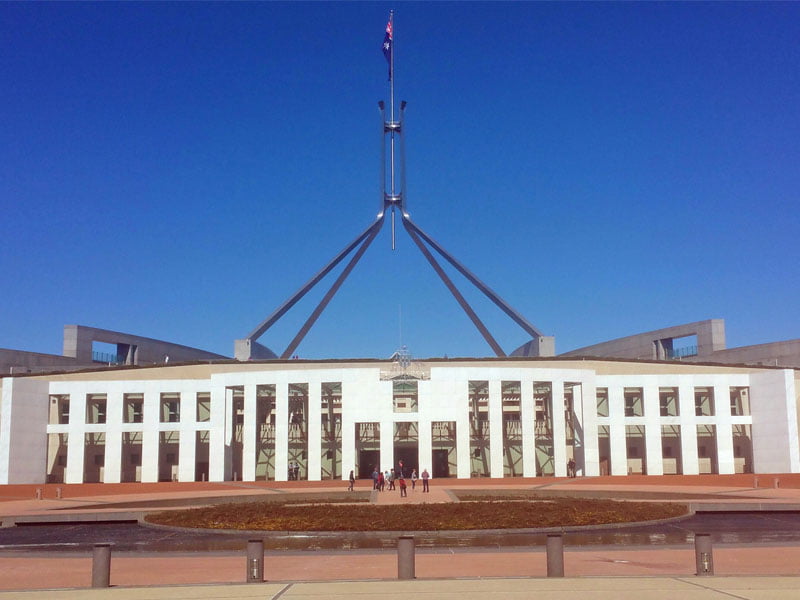The newly-elected Coalition government has been urged to include technology and digital skills in its broader economic vision after a “miracle” win on the weekend.
With the Coalition now set to form a majority government, a range of tech industry groups are calling on it to take a renewed focus on the sector, especially on the digital skills gap and research and development.
StartupAus chief executive Alex McCauley said that with Prime Minister Scott Morrison now all but assured of serving a full term, there would be some “valuable stability”.

“We’re excited about the opportunity now of working with Karen Andrews, Josh Frydenberg and Scott Morrison’s office to integrate Australia’s emerging tech sector into this government’s economic vision for the country,” Mr McCauley said.
“The next three years are going to be absolutely pivotal for Australia’s future prosperity and we’ve got a lot of work to do.”
It’s crucial that the government includes technology and digital change in its plans for the economy, Mr McCauley said.
“During the course of the election campaign the Prime Minister made it clear that Australia’s continued economic prosperity was his principal focus. Over the next few years, that will rely more than ever on our ability to create high-value global companies,” he said.
“There’s still lots of hard work to do to get the settings right to enable more Australian tech companies to become global successes, but we are optimistic about the opportunity now to clearly articulate the important role technology will play in Australia’s future prosperity.”
The re-elected government needs to place a renewed focus on digital skills and upskilling the local workforce, Australian Computer Society president Yohan Ramasundara said.
“We want to see the government take digital literacy skills seriously. Human ingenuity is still required even in the machine age,” Mr Ramasundara told InnovationAus.com.
“So we need to invest as much as we can in our people, young and old, in their education, teaching people new digital skills and confidence to succeed, seizing the opportunities of the fourth industrial revolution,” he said.
“We need a plan to get Australians re-skilled and up-skilled to ensure our industries are placed higher up the value chain. As the 13th largest economy we need to use our buying power to establish R&D and engineering centres by the multinationals in Australia.”
The government also needs to look at ways to improve commercialisation outcomes for Australian research, Mr Ramasundara said.
“We need better incentives to translate research to establish industries of the future and create value and wealth for Australia. We want the government to help make Australian’s ideas evolve into real products and services,” he said.
“We want tech startups to flourish in Australia, scale and expand abroad. We want to remove barriers for their growth.”
The FinTech industry is already encouraging the re-elected government to place its open banking and Consumer Data Right reforms at the top of its agenda.
“Saturday’s result presents a unique opportunity for FinTech, finance and startup policy in Australia. The Morrison government didn’t set an agenda for the technology sector in its campaign,” FinTech Australia general manager Rebecca Schot-Guppy told InnovationAus.com.
“With no policy promises to fulfil, it has an opening to steer the industry in any way it sees fit.
“We believe the government should use this positive opportunity to drive forward the Consumer Data Right and open banking reform,” Ms Schot-Guppy said.
“Open banking reform directly addresses competition concerns raised by Hayne’s Royal Banking Commission, and would provide substantial benefits to consumers. It would be a hallmark policy for the government were it to be implemented early during Prime Minister Morrison’s term.”
The fate of the research and development tax incentive remains unclear, with the Coalition’s plans to apply a $2.4 billion cut to the scheme through a series of changes remaining stalled in Parliament. This year’s budget included a further $1.2 billion cut to the popular scheme over the forward estimates.
Hypetap co-founder and chief executive Detch Singh said the lack of clarity around the RDTI is “very concerning”.
“The R&D scheme is in need of reform, starting with ensuring current incentives are suitable for software and technology companies. The definition needs to be updated to include software development more specifically,” Mr Singh said.
“The processes for R&D tax incentive claims are also outdated, needlessly difficult to navigate and extremely time intensive. This is counter-intuitive to how software startups operate and needs to change,” he said.
“We hope the government takes the future of innovation in Australia seriously and uses this re-election to implement change.”
Do you know more? Contact James Riley via Email.

